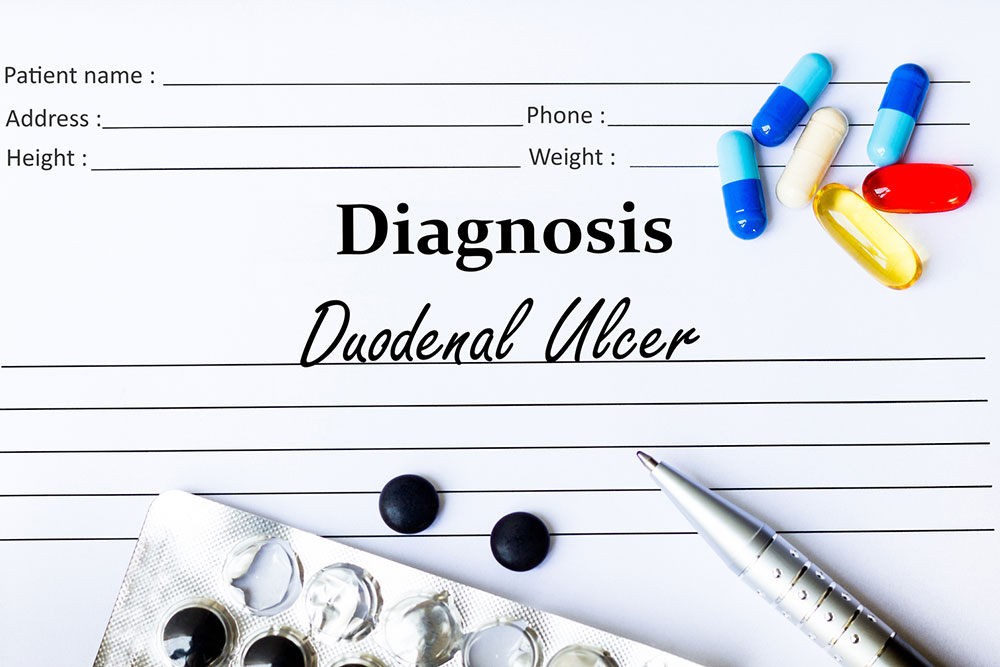
Duodenal ulcer – Causes and symptoms
A peptic ulcer is of two forms – gastric and duodenal. It refers to an inflammation on the lining of the stomach. The only different about both forms is that they affect different parts of the digestive tract. The ulcer that is formed in the stomach is called gastric ulcer, while the ulcer that is formed in the duodenum is called duodenal ulcer. Basically, stomach acids contribute to ulcers. Although spicy foods and stress are some of the causes of ulcer, the other major causing agents of duodenum ulcer include
Helicobacter pylori (H. pylori)
Research shows that almost 90 percent of duodenal ulcer is caused by the bacterium known as Helicobacter pylori (H. pylori). It is an infectious bacteria which is mostly caught from infected food and body fluids. The bacteria can cause inflammation on the lining of your duodenum and an ulcer can be formed. Earlier, researchers believed that H. pylori spread through contaminated food or water, or through contact with vomit or stool of an infected person. But, the fact is H. pylori is also found in saliva, which means the infection could spread through direct contact with saliva. Research shows that 9 out of 10 ulcers are caused by H. pylori. And a good thing about this is since it is caused by the bacteria, they can be cured with the right antibiotics if it is treated before the H. pylori become successful beyond the treatment. Else, surgery is the only solution.
Non-steroidal anti-inflammatory drugs (NSAIDs)
People who rely on NSAIDs such as aspirin, naproxen, and ibuprofen are more likely to suffer from a duodenal ulcer. Over time, these medications damage the mucus that protects the lining of the stomach. The elderly are more likely to develop complications from NSAID-induced ulcers and suffer increased complications. NSAIDs make the stomach vulnerable to the harmful effects of the digestive fluids hydrochloric acid and pepsin. Both hydrochloric acid and pepsin cause high irritation to the mucous membranes of the stomach and duodenum. If NSAIDs seems to have caused the ulcers, the doctor after diagnosis may prescribe a proton pump inhibitor or review the need for the medication.
Symptoms
Most people with ulcer complain about the burning or a distressing pain in the upper abdomen. This pain mostly occurs at the time of the meal when your stomach is empty and may get worse during nights and wake you up. Other less common symptoms include
- Nausea and vomiting
- Poor appetite
- Indigestion problem
- Loss of weight
- Belching or burping often
- Bloating in the abdomen (swollen state due to fluid or gas)
- Bloody or black stool
Some of the symptoms may be cured by avoiding spicy or acidic foods or by taking antacids. In certain cases, these symptoms may get worse if more than one ulcer develops. If there is a sharp pain in the abdomen or any of the above symptoms tends to continue, immediately go check with the doctor. The doctor will treat you according to the type of ulcer you have. In rare cases, surgery may be needed if the medication doesn’t seem to be helpful.


